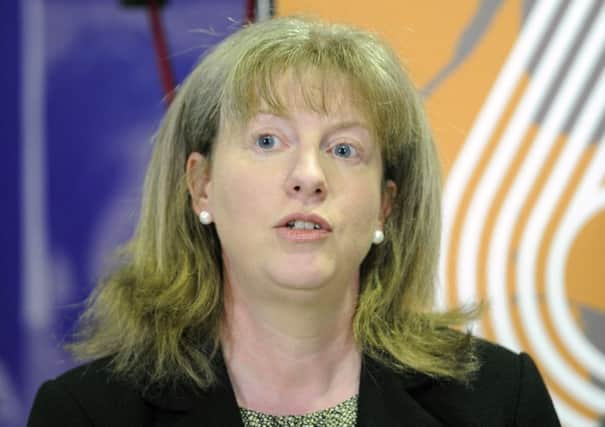Prostate cancer crisis fuels al-Megrahi drug calls


The figure is higher than its equivalent for any of the other four most common cancers and a third greater than estimates for breast and bowel cancer, according to Macmillan Cancer Support.
A man with advanced prostate cancer will survive an average of four years after diagnosis, the charity’s research suggests. The majority of men (84 per cent) will be living with at least one other serious health condition that will further affect their quality of life.
Advertisement
Hide AdAdvertisement
Hide AdIt comes as health secretary Shona Robison urged the manufacturer of a drug credited with keeping the Lockerbie bomber alive after he was freed on compassionate grounds to resolve issues that have rendered it unsuitable for use in Scotland.
In Scotland, prostate cancer is the most common form of the disease among men. Nearly half will be affected by prostate disease at some stage of their lives, with one out of every 11 men likely to develop prostate cancer.
Symptoms include difficulty passing urine, having to pass urine more frequently than usual and the feeling of not being able to completely empty the bladder.
Jane Maher, joint chief medical officer at Macmillan Cancer Support, said: “It is welcome news that survival rates are improving, but as people with advanced prostate cancer are living longer with their illness, their needs now resemble those of people with other long-term conditions.
“The majority of their treatment might be over, but that doesn’t mean that they don’t need the support of the healthcare system.
“With the ongoing development of a cancer strategy and the imminent general election, this is the time for key decision- makers to commit to prioritising cancer care and supporting people living with the disease to lead healthy and fulfilling lives after treatment.”
Last month, the Scottish Medicines Consortium (SMC) rejected abiraterone, which was used to treat Abdelbaset al-Megrahi, for prostate cancer sufferers who have not yet had chemotherapy on the NHS.
Ms Robison told MSPs she has urged the SMC and the manufacturer to find a resolution as soon as possible.
Advertisement
Hide AdAdvertisement
Hide AdShe said: “The Scottish Government absolutely recognises that patients and their representatives will be very disappointed by [the SMC] decision.
“There is a clear demand for this drug, and around 100 patients in Scotland are already on this treatment through the reformed individual patient treatment request system.
“However, we have encouraged the SMC and the manufacturer to find a resolution as soon as possible.”
FOLLOW US
SCOTSMAN TABLET AND MOBILE APPS